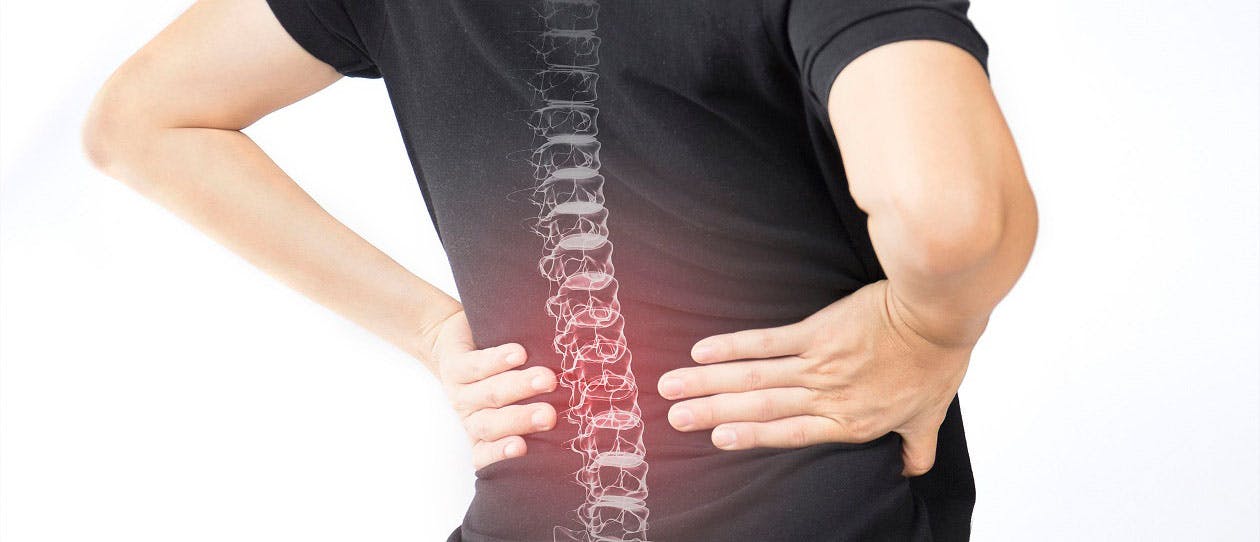Men get brittle bones too
Osteoporosis in men continues to be under-diagnosed and under-treated. Online personal trainer Andrew Cate investigates the prevalence and prevention of this bone thinning disease.

Osteoporosis in men continues to be under-diagnosed and under-treated. Online personal trainer Andrew Cate investigates the prevalence and prevention of this bone thinning disease.
How prevalent is osteoporosis in men?
Osteoporosis is a disease where bones weaken and become less dense, making them more susceptible to fractures. It is commonly thought of as a problem for women, but it can also occur in men. In fact, one in three Australian men over the age of 60 will suffer a fracture due to osteoporosis. Fractures from osteoporosis are less common in men; however, men don’t tend to develop osteoporosis until later in life when compared with women.
Changing testosterone levels change bone mass
Testosterone, the male sex hormone, is important for maintaining healthy bones. When testosterone levels decrease (just like the decrease in oestrogen in women) the bones lose calcium at a faster rate, reducing bone density. Research has suggested that testosterone levels may decrease with age, highlighted in a 2000 American study where up to 52% of men over the age of 65 had reduced testosterone levels and 37% had bone mineral density levels below the young adult normal range and are likely at an increased risk of fracture. Additional risk factors for osteoporosis include symptoms of low testosterone levels, such as impotence and low libido.
Maintaining bone density to prevent osteoporosis
Your lifestyle plays a significant role in bone health. While there are some risk factors for osteoporosis that you have no control over (a family history of osteoporosis and fractures increases your risk) there are some lifestyle factors you can control. These include:
- not smoking
- limiting your alcohol intake
- limiting your caffeine intake
- getting the recommended daily intake (RDI) of calcium
- getting the RDI of vitamin D
- being active and exercising
Physical activity can potentially slow down or even halt the age related decline in bone mass. This is because bone responds to mechanical stress. The physical forces placed on your bones during muscle contractions helps to improve bone strength. Weight training is preferable to weight bearing exercise because the loads are multidirectional and unique compared with typical daily weight-bearing activities such as walking.
These benefits were demonstrated in a 2009 US research review which found that strength-trained men had greater bone mass and density, and improved skeletal status. They found that resistance exercise is safe and results in important musculoskeletal adaptations that promote bone health and offset the declines that normally occur with ageing.
It’s also important to consider the additional benefits of strength training, including the retention of muscle mass and improved strength, agility, and balance that may help to prevent falls and fractures.
Did you know?
Research has shown that men who perform strength training have greater bone mass and density, and this can help to offset the decline in bone health that normally occurs with aging.
Lift right for your bones
Research suggests that heavier weights may be particularly beneficial to promote bone mass. This makes it important to begin resistance training before significant bone loss occurs, and minimise the risk of injury when high-intensity weight lifting is performed. It is also important to build up gradually and lift weights with correct posture and technique.
Did you know?
One in three Australian men over the age of 60 will suffer a fracture due to the bone thinning disease osteoporosis.

Blackmores The articles produced by Blackmores are authored by a dedicated team of expert writers who tailor their content to address topics that resonate with our community's interests.
- DATE
- 24 Oct 2023
- AUTHOR
- Blackmores
- CATEGORY
- SHARE